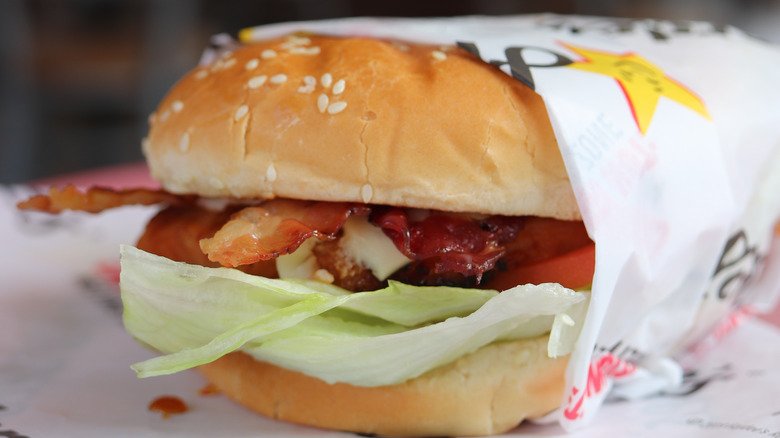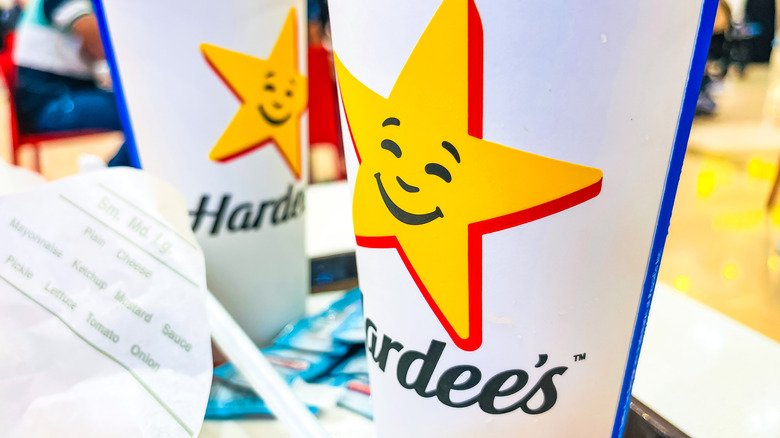A String Of Hardee's Locations Closed Without A Clear Explanation
Some fast food fans in Kansas, Georgia, Missouri, and South Carolina must wave goodbye to biscuits and chicken tenders. It's the end of an era for their local Hardee's. Multiple stores across the Midwest and Southeast suddenly and permanently closed with zero warning, leaving both employees and the surrounding communities shocked. According to The Wichita Eagle, a local Kansas news outlet, some employees weren't informed of store closings until the morning of shifts they were scheduled to work – as was the case at a store in Derby, KA that employed 27 people. In addition to the closed Derby store, Hardee's had three stores in Wichita, all of which closed, along with another Hardee's in Topeka. The newly-closed South Carolina Hardee's had been a long-standing fixture in its community since the 1970s. The dining room was suddenly closed in the middle of the afternoon, and the drive-thru took its last order at the end of the regularly scheduled business day.
Now, workers are left scrambling and without clarification. In a statement, Hardee's parent company CKE Restaurant Holdings tells Nation's Restaurant News that CKE is "aware" of the closings and "working diligently to ensure that the impact to guests, employees, vendors, and communities is minimized." But, be that as it may, hundreds of workers have suddenly been laid off and, at least publicly, no one seems to know why.
Another (albeit mysterious) rough patch for the fast food industry
CKE owns Hardee's and Carl's Jr. on a macro-level, and there are around 2,100 remaining Hardee's stores in operation. The five shuttered Kansas Hardee's were all owned by Capstone Restaurant Group, a franchisee that owns 270 total fast food restaurants spanning 16 states. Capstone also owns several Taco Bell, Pizza Hut, and Dunkin stores, many of which it has also shuttered in recent months. In a Reddit post about the Athens, Georgia Hardee's closing, one user comments, "That place was severely understaffed. The last time I went, there was one person working. ONE." Indeed, staff shortages could reasonably be a potential motivation for this and/or other store closures, but any definitive explanation remains to be seen.
The fast food industry has taken a massive hit over the past few years. After the pandemic, a swamp of other epidemics has cropped up, including a nationwide labor shortage, supply chain issues, and inflation making operational costs unsustainably high. In 2021, a Hardee's restaurant in North Carolina made unfortunate headlines when it had to shut its doors due to a lack of employees. But it's not just Hardee's that has struggled lately. The year, Burger King closed 26 stores in Michigan, putting more than 400 people out of work. More than one major B.K. franchisee filed for Chapter 11 bankruptcy citing low sales. In April, McDonald's reportedly laid off workers and temporarily closed its Chicago-based U.S. offices.

